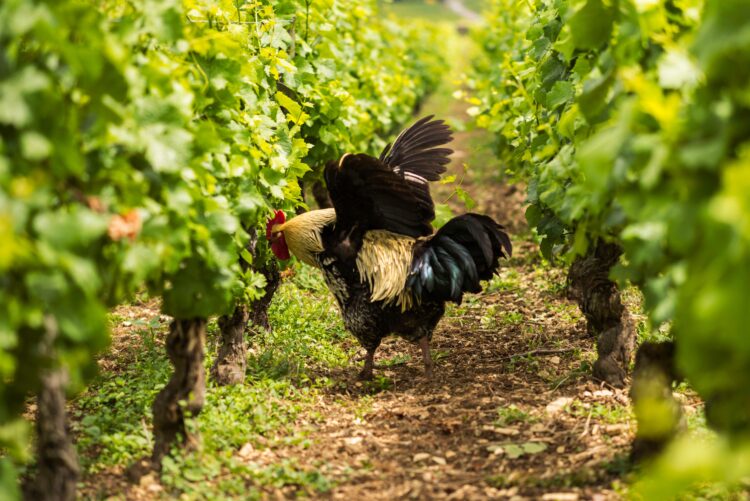Introduction
As the demand for sustainable and regenerative agriculture grows, biodynamic farming is emerging as one of the most impactful solutions. Originally developed by Austrian philosopher Rudolf Steiner in 1924, this holistic farming approach treats farms as self-sustaining ecosystems, integrating lunar cycles, natural composting, and biodiversity to improve soil health and crop vitality.
But biodynamic farming is no longer just about agriculture—it’s reshaping entire industries, from winemaking and hospitality to cosmetics and retail. In this guide, we explore five key ways biodynamic farming is transforming sustainable businesses, proving that this method is more than just a niche trend.
1. Revolutionizing Sustainable Winemaking
One of the biggest success stories of biodynamic farming is its impact on the wine industry. Some of the world’s top wineries have embraced biodynamic viticulture, producing wines that express their terroir with minimal intervention and maximum purity.
How Biodynamic Farming is Changing Winemaking:
✔️ Soil health & biodiversity – Eliminates synthetic chemicals and promotes natural microbial life.
✔️ Lunar cycle-driven vineyard work – Pruning and harvesting align with cosmic rhythms.
✔️ Minimal sulfite use – Fermentation happens naturally with native yeasts, enhancing flavor complexity.
✔️ Strict biodynamic certifications – Many wineries are certified by Demeter International, ensuring high sustainability standards.
Want to explore top biodynamic wines? Check out our guide on The Best Biodynamic Wines to Try in 2025.
2. Enhancing Soil Health and Carbon Sequestration
Biodynamic farming improves soil structure and fertility, making it one of the most effective methods for carbon sequestration and climate resilience.
Key Benefits of Biodynamic Soil Management:
🌱 Zero chemical fertilizers – All nutrients come from natural composts and biodynamic preparations.
🌾 Cover cropping & crop rotation – Enhances biodiversity, reducing soil erosion.
🌍 Carbon sequestration – Healthy soils capture and store more CO₂, reducing climate impact.
Major biodynamic farms worldwide have demonstrated that regenerative soil practices not only boost productivity but also create a climate-positive impact.
💡 Interested in how biodynamic farming compares to organic methods? Read our article on Organic vs. Biodynamic Wine: 5 Key Differences.
3. Expanding Beyond Agriculture into Beauty and Wellness
Biodynamic principles aren’t limited to food and wine. Leading cosmetic and skincare brands are now adopting biodynamic farming to ensure purity and sustainability in their ingredients.
Biodynamic Skincare and Beauty Brands to Watch:
🌿 Dr. Hauschka – A pioneer in biodynamic skincare using organically grown herbs.
🌱 Weleda – Uses biodynamic plant extracts in its personal care products.
💆 Aveda & Eminence Organic Skincare – Incorporate biodynamic botanicals for high-performance skincare.
These brands emphasize regenerative farming, cruelty-free testing, and chemical-free formulations, making biodynamic beauty a growing trend in sustainable consumerism.
4. Changing the Restaurant and Hospitality Industry
Chefs and restaurateurs are increasingly sourcing biodynamic ingredients for their kitchens, prioritizing seasonality, farm-to-table principles, and sustainability.
How Biodynamic Farming is Influencing Restaurants:
🥗 Locally sourced, chemical-free ingredients – Enhancing flavor and nutritional value.
🌿 Hyper-seasonal menus – Biodynamic calendars guide planting and harvesting.
🍷 Pairing with biodynamic wines – Many fine dining restaurants feature biodynamic wine lists.
Some of the world’s top Michelin-starred restaurants now prioritize biodynamic ingredients to create a healthier, more sustainable dining experience.
🍷 Want to learn how biodynamic wines enhance fine dining? Read our article on Biodynamic Winemaking Techniques.
5. Creating New Standards for Sustainable Business Models
Biodynamic farming is proving that businesses can be both profitable and environmentally responsible. Companies that embrace biodynamic principles often integrate:
🔹 Circular economy models – Waste is recycled back into the farm ecosystem.
🔹 Ethical supply chains – Sourcing raw materials from biodynamic-certified farms.
🔹 Regenerative business practices – Improving land, not depleting it.
From fashion brands using biodynamic cotton to hotels offering biodynamic farm stays, this farming method is shaping the future of eco-conscious entrepreneurship.
Final Thoughts: Why Biodynamic Farming is the Future of Sustainability
Biodynamic farming isn’t just about growing food and wine—it’s a holistic movement driving sustainability across multiple industries. From regenerative agriculture and natural skincare to hospitality and ethical business models, its impact is undeniable.
🌍 Why Businesses Are Embracing Biodynamic Farming:
✔️ Boosts biodiversity and soil health.
✔️ Reduces carbon footprint and promotes sustainability.
✔️ Creates higher-quality, chemical-free products.
✔️ Aligns with increasing consumer demand for ethical and organic goods.
Whether you’re a wine lover, eco-conscious consumer, or entrepreneur, biodynamic farming is shaping the future of sustainability.
🍷 Want to explore how biodynamic farming impacts winemaking? Read our in-depth article on Domaine Leflaive Wines: A Biodynamic Icon in Burgundy.
References:





